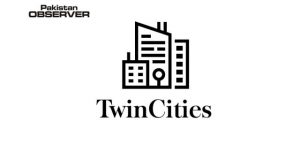Zubair Qureshi
Experts and civil society representatives while participating in a webinar criticized Capital Development Authority (CDA) for its tug-of-war with Metropolitan Corporation Islamabad (MCI) since the inception of the latter for the last over four years.
They said citizens were suffering from the illogical rift as the civic services and environmental conditions were deteriorating from bad to worse over the last few years in the federal capital.
The tug-of-war between the two, the city managers and the people’s representatives, over the funds and authority have spoiled the sustainability of the entire system of service delivery.
The civil society representatives highlighted that water shortage, lack of proper management of domestic waste and sewage, broken roads, diminishing green cover and belts and irrational development have marred the sustainability of the city.
Development Communications Network (Devcom-Pakistan) organized the webinar on the subject “Population and Sustainable Urban Practices for Islamabad” on Saturday to mark the UN World Population Day.
The key speakers included water and climate expert Ali Tauqeer Sheikh who is the former Director Asia for the Climate and Knowledge Development Network (CKDN) project, MCI Deputy Mayor Zeeshan Naqvi, Solid Waste Management expert Saadat Ali, environmental advocacy expert Mome Saleem, and Dr Hammad Gillani who is researcher, analyst and assistant professor at the Institute of Space Technology (IST). Among others who spoke included Dr Naveed, Syed Haq, Arshad Mahmood, Nilofar Jamil.
Zeeshan Naqvi said Metropolitan Corporation Islamabad (MCI) was allocated PKR 14 billion two years back for different project proposals but no penny was released so far.
Even the MCI cannot use the tax it collects from different sources because the MCI Rules of Business are not approved as yet by the government.
The MCI House has approved the schemes of small dams on eight natural streams originating from the foot of Margalla Hills, improvement in the sewage treatment plants, repair and provision of water, filter plants, maintenance of parks.
They are all possible if the funds are provided. We are handcuffed by the government, perhaps, because we belong to the opposition party.
Naqvi said the encroachments cannot be removed without the support of ICT district management.
Despite repeated requests MCI was not extended due cooperation by the district management to remove illegal constructions from the green belts and national park areas.
However, he said, MCI is trying to take care of the city with whatever limited human resources and funds are available.
Collection of domestics waste has been improved while working on the landfill site, trying to improve the conditions of parks besides efforts are underway to overcome shortage of water supply.
He asked the government to urgently start a process of amendments in the rules and regulations framed for the capital city to ensure rights to the locals.
He said legislation is needed on the contradictions in the same zone that perturb the rights of citizens.
Talking about the new paradigm of sustainable urban management, the water and climate expert Ali Tauqeer Sheikh said resilience of the city matters that how good coping mechanisms are in place to face the disasters, urban flooding, impact of harsh weathers, water scarcity, recycling and waste management systems.
He said the concept of smart city for Islamabad is already underway but without meaningful measures it would not be sustainable.
The population density becomes more productive in terms of socioeconomic outcomes if they have opportunities to be productive.
The federal city is expanding beyond limits without any planning and resource management that would become liability soon if conditions remained so.









